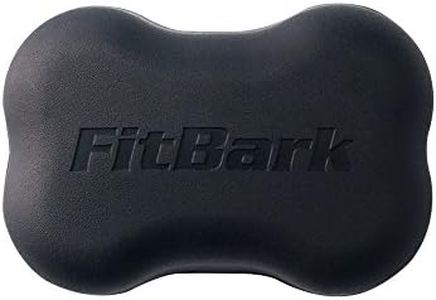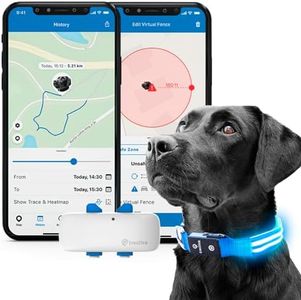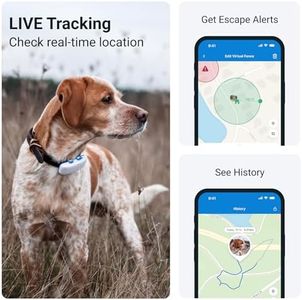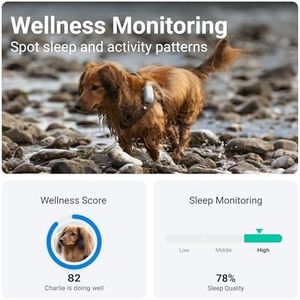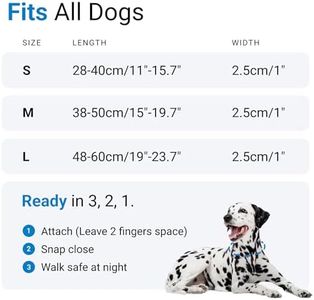9 Best Pet Trackers 2025 in the United States
Winner
Fi Series 3 Smart Dog Collar - GPS Dog Tracker and Activity & Health Monitor, Waterproof, LED Light, Escape Alerts, Nationwide Coverage [Free 1 Year Membership] (Pink, Small)
The Fi Series 3 Smart Dog Collar is a highly advanced pet tracker designed to keep tabs on your dog's location, activity, and health. One of its standout features is the GPS accuracy, which provides nationwide coverage without a maximum range, making it ideal for pet owners who live in wide-open spaces or travel frequently with their pets. Additionally, the escape alerts feature can provide peace of mind by notifying you if your dog leaves a designated area, allowing for quick action if they get out unexpectedly.
Most important from
699 reviews
Tractive XL GPS Dog Tracker (50 lbs+) | Real-time Pet Location Tracker | Health & Wellness Alerts | Virtual Fence for Dogs | Dog Collar Attachment (Green)
The Tractive XL GPS Dog Tracker is designed for large dogs over 50 lbs and offers real-time GPS tracking with unlimited range, updating every 2-3 seconds to ensure accurate location data. This feature is notably faster than many competitors, making it excellent for keeping track of your pet’s whereabouts. It also includes virtual fences and location history, allowing for the setup of safe zones and alerts when your dog leaves the designated area. This can be particularly useful for preventing your dog from wandering too far from home.
Most important from
2431 reviews
Tractive GPS Tracker & Health Monitoring for Cats (6.5 lbs+) - Market Leading Pet GPS Location Tracker | Wellness & Escape Alerts | Waterproof | Works with Any Collar (Brown)
The Tractive GPS Cat Tracker is designed for cats weighing 6.5 lbs and up, featuring real-time GPS tracking with updates every 2-3 seconds, which is significantly faster than many competitors. This makes it highly reliable for pet owners who want up-to-the-minute updates on their cat's location.
Most important from
2338 reviews
Top 9 Best Pet Trackers 2025 in the United States
Winner
9.8 score
Fi Series 3 Smart Dog Collar - GPS Dog Tracker and Activity & Health Monitor, Waterproof, LED Light, Escape Alerts, Nationwide Coverage [Free 1 Year Membership] (Pink, Small)
Fi Series 3 Smart Dog Collar - GPS Dog Tracker and Activity & Health Monitor, Waterproof, LED Light, Escape Alerts, Nationwide Coverage [Free 1 Year Membership] (Pink, Small)
Chosen by 1317 this week
Tractive XL GPS Dog Tracker (50 lbs+) | Real-time Pet Location Tracker | Health & Wellness Alerts | Virtual Fence for Dogs | Dog Collar Attachment (Green)
Tractive XL GPS Dog Tracker (50 lbs+) | Real-time Pet Location Tracker | Health & Wellness Alerts | Virtual Fence for Dogs | Dog Collar Attachment (Green)
Tractive GPS Tracker & Health Monitoring for Cats (6.5 lbs+) - Market Leading Pet GPS Location Tracker | Wellness & Escape Alerts | Waterproof | Works with Any Collar (Brown)
Tractive GPS Tracker & Health Monitoring for Cats (6.5 lbs+) - Market Leading Pet GPS Location Tracker | Wellness & Escape Alerts | Waterproof | Works with Any Collar (Brown)
Our technology thoroughly searches through the online shopping world, reviewing hundreds of sites. We then process and analyze this information, updating in real-time to bring you the latest top-rated products. This way, you always get the best and most current options available.

![Fi Series 3 Smart Dog Collar - GPS Dog Tracker and Activity & Health Monitor, Waterproof, LED Light, Escape Alerts, Nationwide Coverage [Free 1 Year Membership] (Pink, Small)](https://images-proxy.bestreviews.guide/f9MS3F0y2dGCvtiby-Dr7tjNVp8=/0x300/https://m.media-amazon.com/images/I/41HcwqJKJHL._AC_CX679_.jpg)
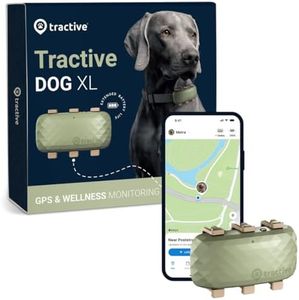
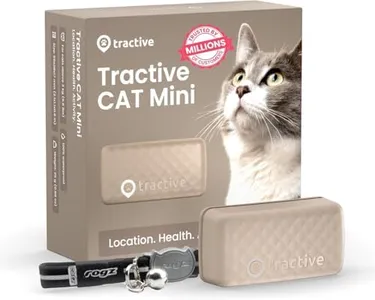
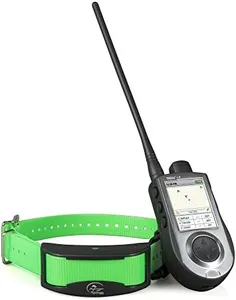












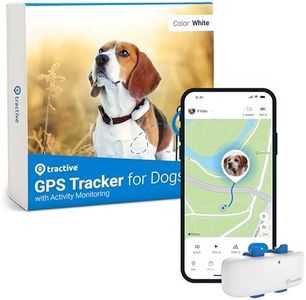
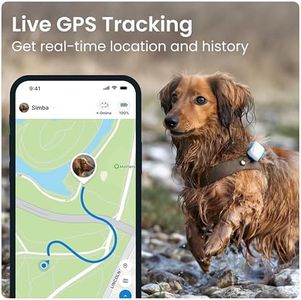
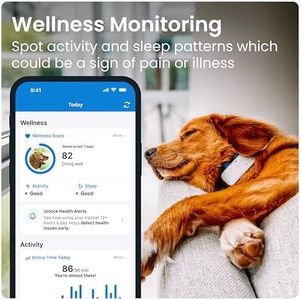

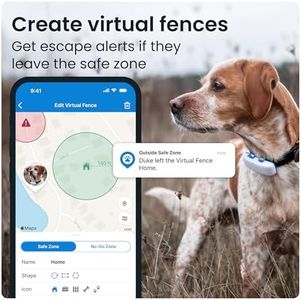
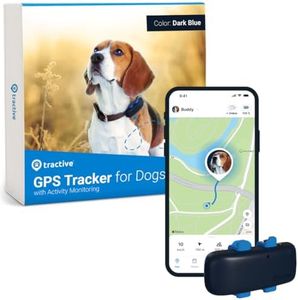



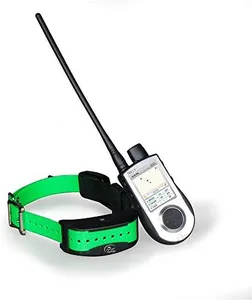
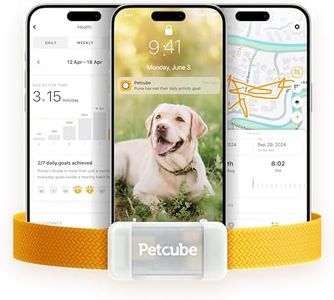
![Fi Series 3 Smart Dog Collar - GPS Dog Tracker and Activity & Fitness Monitor, Waterproof, LED Light, Escape Alerts, Nationwide Coverage [Free 6 Month Membership] (Gray, Large)](https://images-proxy.bestreviews.guide/UTgQ5NPpgLGNNa93Ks0eccMQwi4=/0x300/https://m.media-amazon.com/images/I/41DuFnw1f0L._AC_CX679_.jpg)
